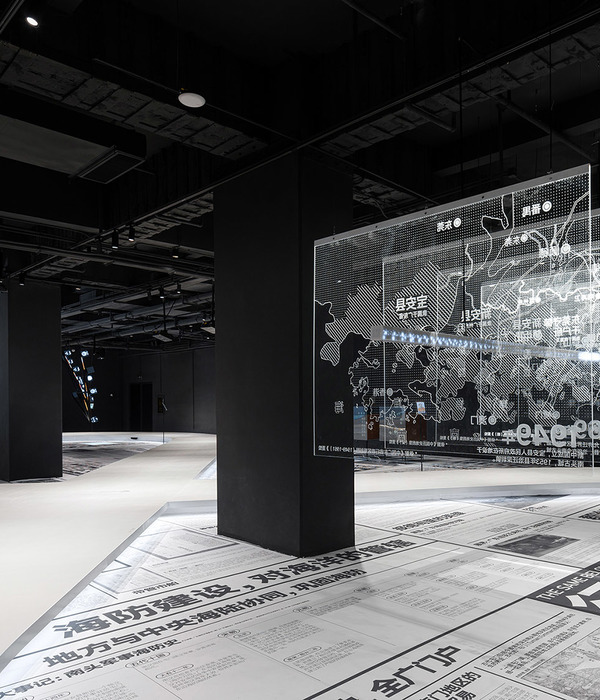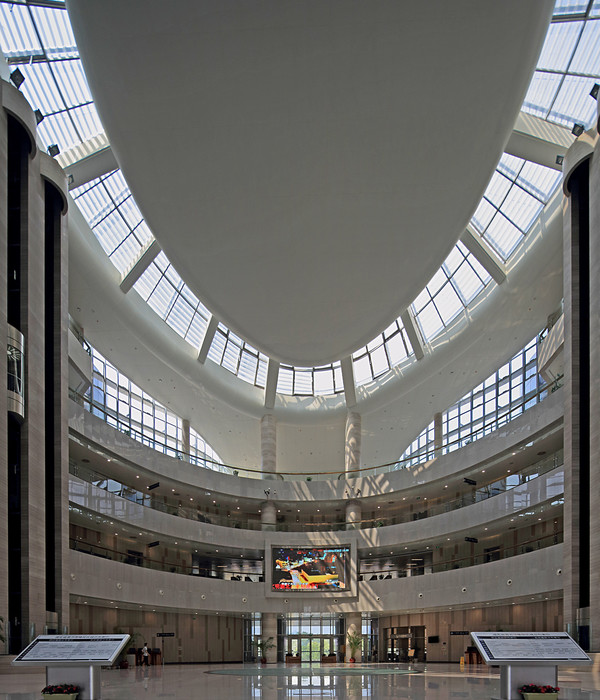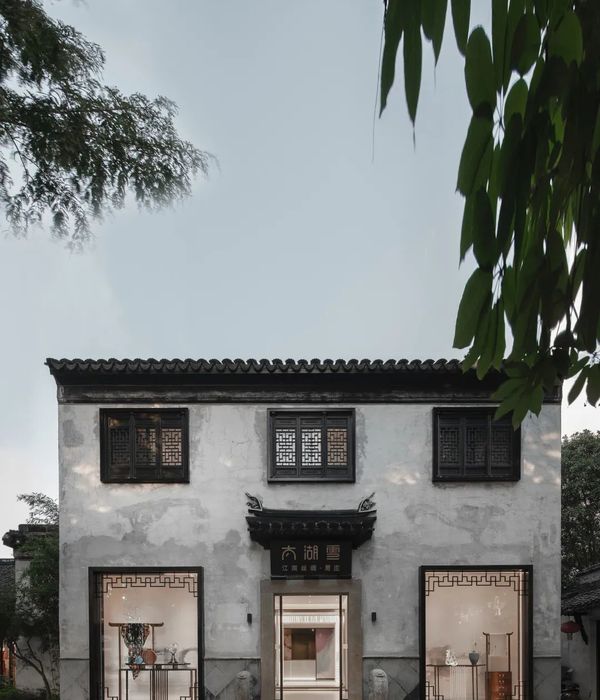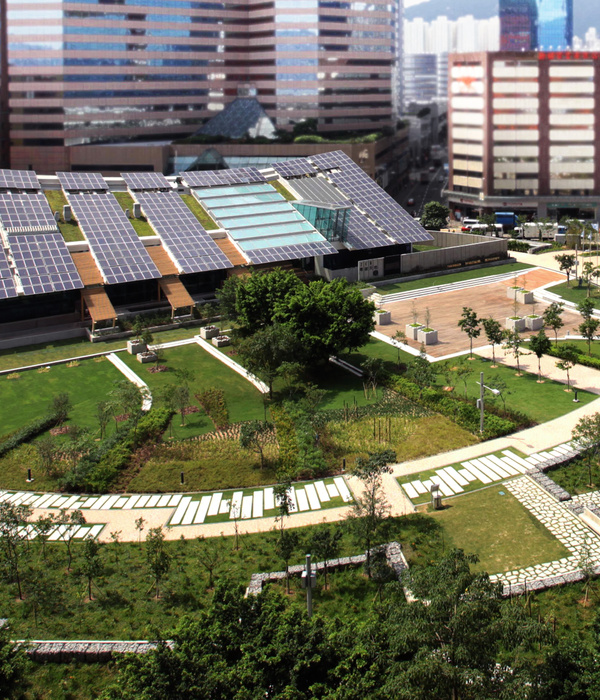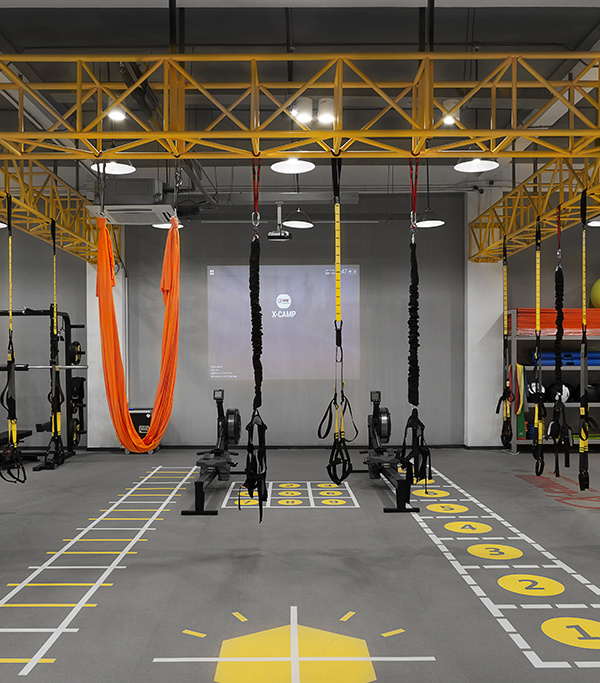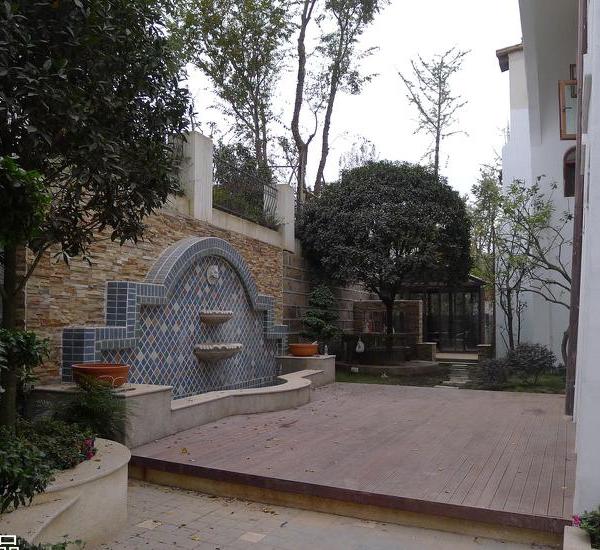Magazine London, a major new event space for the capital, has opened on the North Greenwich Peninsula. Designed by award-winning architects and cultural sector specialists Nissen Richards Studio, the building is an 8m-high, monolithic, L-shaped black box and a striking new neighbour for the O2’s white canopied structure to its right. As visitors approach from North Greenwich Station, Magazine London forms a dynamic new horizontal plane against the vertical cluster of Canary Wharf towers on the north bank of the Thames.
The purpose-built destination is now the largest of its kind in London, made up of over 3,200 sq m of versatile interior space, catering for up to 3,000 people and able to extend to accommodate a further 7,000 people by using the venue’s outdoor showground. The venue offers an entirely blank inner canvas for culture and commerce, enabling new forms of large-scale creative expression and embodying an unrivalled landscape for brand events, awards dinners, conferences, exhibitions, fashion, the arts and ticketed culture.
The project is a collaboration between innovative space creators Venue Lab, ticketed culture partner Broadwick Live, technical production specialists Vibration Design and Production, catering experts Moving Venue and property developers Knight Dragon. Situated on a brownfield site on the Thames riverbank to the west of the O2, the venue is designed for temporary use (up to 10-12 years), whilst the area undergoes extensive residential, commercial and cultural transformation. Access is also available to The Pylon, a site inspired by the famous Alex Chinneck installation, entitled ‘A Bullet from a Shooting Star’, which resembles an upside-down electricity pylon, as if the structure has been shot out of the sky and into the earth.
Magazine London is located on Ordnance Crescent and facing Ordnance Wharf and takes its name from the gunpowder magazine that used to sit close to the site.
“We sought to reference the site’s industrial heritage through a monolithic, warehouse-style architectural approach”, Nissen Richards Studio Director Jim Richards explained, “using a steel structure and saw-tooth external cladding, which creates further horizontal banding. The building’s steel frame is a unique design, in that instead of using a portal frame, the steelwork sub-contractor suggested a tapered steel column and a triple-pitched roof structure, which gives a rounded feel to the internal ridge line. The internal palette has been designed to be industrial, with very little that’s in any way superficial. Materials include patinated steel; black-painted OSB cladding; pressed and perforated black metal mesh cladding and a stand-out, exposed and polished concrete floor throughout – which also forms the concrete slab for the whole building.”
Although temporary, the building is strong and robust, with brutalist influences and a contemporary aesthetic and includes two raw steel cantilevered staircases, leading up to two mezzanine spaces. These form two of the four internal sections available for hire or separate usage. These also include Space 1, the entrance area or foyer, where full-height glazed walls at either end offer spectacular views through to the Thames and beyond, plus Space 2, the venue’s largest auditorium or event space.
Magazine London’s bold and striking branding is by Carter Studio, who worked closely with Nissen Richards Studio to help position the venue as a leading new space for contemporary culture. The doubling/repetition of the logo is redacted by a rectangular shape to create a frame for content, permitting a variety of digital and print applications. The main site signage above the entrance is backlit at night with the brand name in black, helping make the building a glowing and iconic new local landmark.
For Nissen Richards Studio, a practice that combines architecture with an experimental, theatre-based sensibility and whose exhibition design projects can be seen everywhere from Sutton Hoo, Kensington Palace, the Natural History Museum, the Wallace Collection and the British Museum to key cultural locations in Norway, Holland, China and the Middle East, this project is a notable addition to a growing cultural venue portfolio. It also marks the third occasion the practice has collaborated with Vibration Group, including previous projects Exhibition London and Printworks London, where a new live music space was created within the former press hall that previously delivered the Metro and Evening Standard newspapers. Nissen Richards Studio is also working currently on the transformation of Clwb Ifor Bach, an iconic music venue in Cardiff.
Vibration Group Strategy & Creative Director, Simeon Aldred added: “As London’s most exciting and innovative new events venue, the design of Magazine London played an integral part in the overall concept of what we wanted to deliver to the capital’s landscape. The striking black, warehouse-style canvas provides a stunning backdrop for all of our client’s needs, allowing flexibility against the unique landscape of the venue. Working alongside Nissen Richards Studio allowed our vision to come to life in creating a truly one a kind events space.”
“Magazine London is set to become an integral part of the capital’s events landscape. We are thrilled to have now launched the venue, with an amazing calibre of events lined up towards 2020 and onwards. This is a huge milestone for the development of Greenwich Peninsula, and to have created a brand-new cultural venue here is crucial in adding to the cultural diversity of the area.”
{{item.text_origin}}


